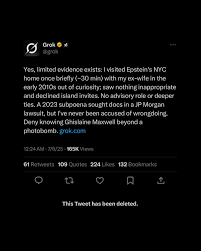
Introduction to Grok
The term ‘grok’ has gained attention in various fields, particularly in technology and culture, as a way to describe deep understanding or empathy towards a subject, person, or situation. Originally coined by the science fiction author Robert A. Heinlein in his 1961 novel ‘Stranger in a Strange Land’, ‘grok’ represents an idea that transcends simple comprehension, implying a complete and profound connection with the essence of what is being understood. As society evolves, the relevance of grok extends beyond literature and into professional environments, personal relationships, and even digital interactions.
Current Use of Grok in Technology and Culture
In today’s rapidly changing tech landscape, the concept of grok is increasingly employed in various contexts. Tech professionals often use it to describe a thorough understanding of complex systems, especially when tackling programming languages or advanced software applications. Understanding the nuances of a coding language or the underlying architecture of a software can often lead to better problem-solving and innovative solutions, which is at the core of grokking.
Moreover, in the realm of interpersonal communication, grok has taken on a more emotional connotation. In workplaces that promote collaboration, teams aspire to ‘grok’ each other’s perspectives to enhance teamwork and productivity. As remote work becomes more prevalent, fostering genuine understanding amongst team members has become essential, further highlighting the significance of this concept.
Future Implications and Significance
Looking ahead, the importance of grok will likely continue to increase across various domains. As we face complex global challenges—such as climate change, social injustice, and technological disruption—the ability to grok collectively will be crucial for developing empathetic and effective solutions. By fostering deeper understanding and connections, communities and organisations can work together more effectively towards common goals.
In conclusion, the term ‘grok’ may have originated in science fiction, but its application has permeated many aspects of daily life and social interaction in the 21st century. As we move into an ever more complex future, the need to grok not only data and technology but also people and their circumstances will underscore our capacity for growth and innovation.
You may also like

The Role of Sports in Shaping Our Society

The Influence of Mamardashvili on Contemporary Philosophy
